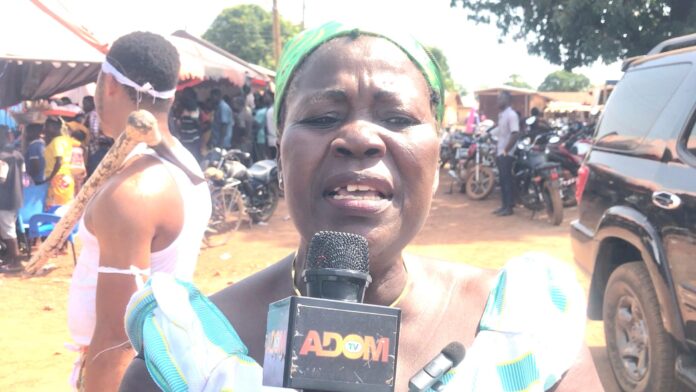The President of Bikpakpaanbe, Atoor Anyobaank, has called on the government to prioritize investments in Konkomba women as a key strategy to break the cycle of poverty that has long affected their communities.
Speaking at a gathering in Kpassa, located in the Nkwanta North District of the Oti Region, Rebecca Batul, the president, highlighted the difficult circumstances many Konkomba women face, including poverty, lack of education, and inadequate healthcare.
She stressed that despite being the backbone of their families and communities, these women are often marginalized and overlooked in development initiatives.
Batul emphasized that investing in women is not just a moral responsibility but a strategic necessity for the sustainable development of the region. “When women thrive, families thrive, and communities flourish,” she declared.
She noted that the lack of access to quality education for many Konkomba women severely limits their economic opportunities.
Batul urged the government to implement targeted programs that provide educational resources, vocational training, and financial literacy workshops specifically designed for women. These initiatives, she believes, will empower women and help them break free from the cycle of poverty.
The president also highlighted the importance of healthcare access, particularly maternal and child health programs.
She pointed out that many Konkomba women face serious health challenges, often exacerbated by a lack of resources and support. She called for increased investment in healthcare services to ensure that women can lead healthy lives and make meaningful contributions to their communities.
In an interview with Adom News, Faustina Donkor, a community advocate, echoed the need for government intervention, particularly in marginalized Konkomba communities.
She lamented the long-standing struggles of Konkomba women with economic hardship, stating, “Poverty is not only a lack of money but also a lack of opportunities in education and health, which can change the narrative.”
Both Batul and Donkor’s calls for government action aim to address the pressing challenges faced by Konkomba women and ensure they receive the support necessary to drive economic and social progress in their communities.
ALSO READ:

